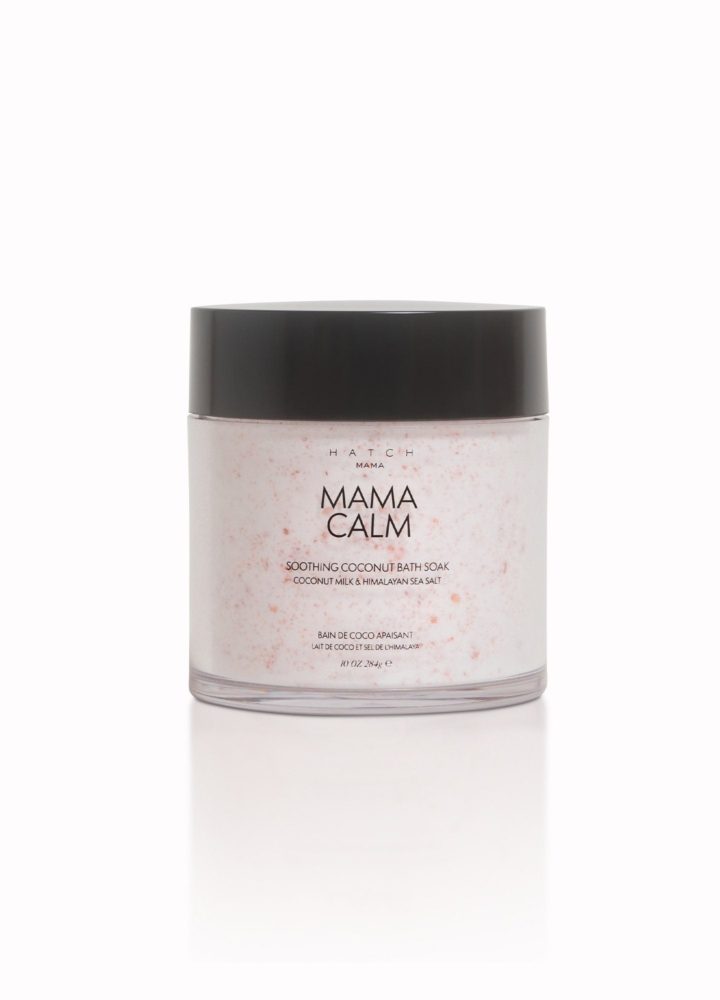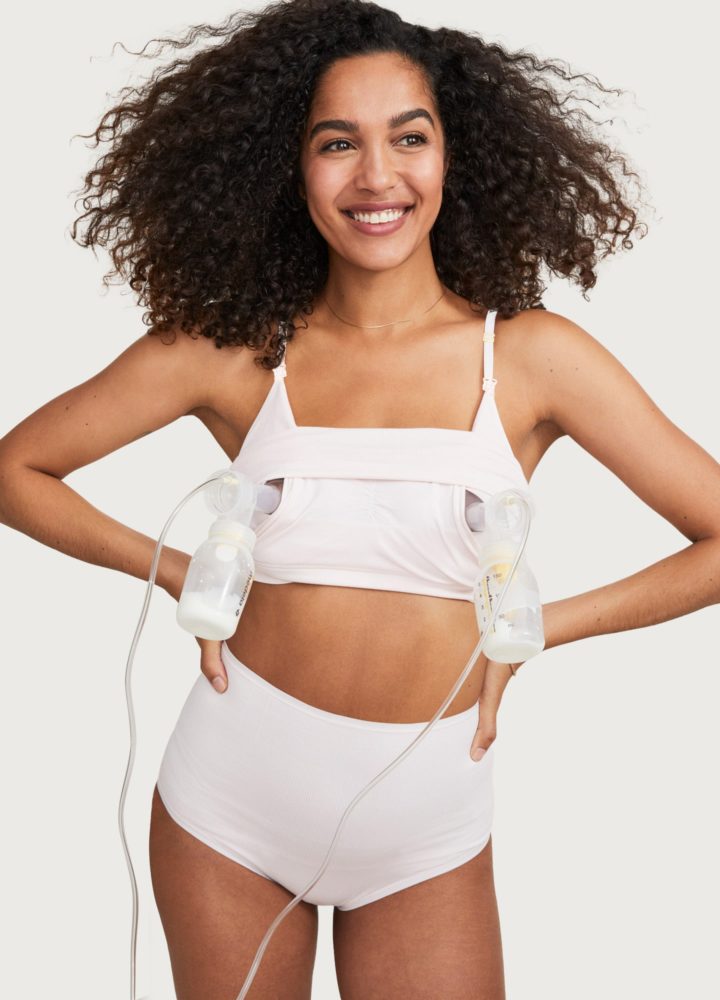During pregnancy, we get used to making sacrifices (including the baby shower guest list and more). But do we really have to give up our allergy medicine?? After all, that’s how some of us make it through the day during pollen season!
Luckily, the answer is no — for the most part, anyway. There are pregnancy-safe allergy options out there for you. Keep reading for a roundup of some of your over-the-counter allergy medicine options while pregnant or breastfeeding.
Allergies and Pregnancy: What To Know
Whether you’re a victim of seasonal allergies or just suffer the occasional stuffy nose, it’s important to know what to expect when it comes to allergies and pregnancy. Why? Because (just like everything else during pregnancy) your body is changing, and your allergies may change as well.
One-third of pregnant women find that their allergies improve or disappear during pregnancy. Another third finds that these symptoms worsen — or even develop new allergies altogether. (Fingers crossed we get to skip that last one.)
Although your allergies may evolve during pregnancy, the symptoms you can expect are the same as they are for non-pregnant women. We’re talking stuffy nose, congestion, sneezing, itchy eyes, sinus pressure, the works. It’s just a question of whether those symptoms intensify, improve, or remain the same.
And, of course, it’s possible that your allergy experience may remain the same during pregnancy, but better to be informed about all of your options and make a choice as flawless and intentional as your wardrobe.
Pregnancy-Safe Allergy Meds
It’s worth being picky about allergy medications during pregnancy. Like many drugs, less is known about the potential side effects on a growing baby than on an adult, so proceed with caution, especially during the first trimester. When in doubt, it’s always a good idea to go to your Ob/Gyn or healthcare provider with questions or concerns.
Several medication categories that can treat allergies include antihistamines, decongestants, corticosteroids, and allergy shots. Let’s chat a little bit about each one.
Antihistamines and Pregnancy
When you think of allergy meds, you probably think of antihistamines. This class of medication is often the front line of defense against allergies — Zyrtec, Claritin, Xyzal, Benadryl, and Allegra are all antihistamines. They might start working immediately (in the case of Benadryl) or build up over time (like Zyrtec and other daily allergy medications).
Antihistamines fight allergic reactions by blocking histamine, which is the cause of all those fun symptoms like sneezing, itchy eyes, and a runny nose. Your immune system automatically releases histamine during an allergic reaction as a self-defense mechanism.
If you deal with seasonal allergies to pollen, your histamine response might be milder (i.e., stuffy nose). Other allergies, such as food allergies, might be more severe and require a faster-acting antihistamine.
Normally, you’d choose the appropriate allergy medication for your situation based on symptoms and severity. But just like choosing the best prenatal vitamin, the best nursing bra, or anything when it comes to pregnancy, not all antihistamines are created equal.
What Are the Safest Antihistamines for Pregnant Women?
Generally, the safest antihistamines for pregnant women tend to be second-generation oral antihistamines. These are allergy meds that don’t cause drowsiness or sleepiness. This class of antihistamines is typically safe for pregnant women. The active ingredients to look out for are loratadine (found in Alavert and Claritin) and cetirizine (found in Zyrtec).
First-generation oral antihistamines, including fexofenadine (Allegra), chlorpheniramine (ChlorTrimeton), and diphenhydramine (Benadryl), have also been found to be generally safe for pregnant women. However, your doctor might note that these meds can cause drowsiness — and should not be taken before operating heavy machinery, driving, or doing anything that requires your full attention and performance.
So, to recap — antihistamines are the front-line defense against allergic rhinitis (seasonal allergies) and are generally considered safe while preggo (although non-drowsy meds like Zyrtec and Claritin tend to be favored more).
But what about decongestants?
Decongestants During Pregnancy
Nothing cuts through the nasal congestion and constant sneezing quite like good old Sudafed. Unfortunately, though, some OTC medications (over-the-counter medications), like decongestants, pose a few more risks than oral antihistamines.
Recent studies suggest that the active ingredient in Sudafed, pseudoephedrine, is best avoided during your first trimester and possibly altogether. Decongestants that don’t get absorbed into your bloodstream, such as oxymetazoline (Afrin, Neo-Synephrine), are more likely to be safer.
Of course, decongestants have their own side effects and may react poorly when combined with other meds. Much like toddlers, allergy medications don’t always play nice even when mama asks them to.
As always, if you aren’t sure what option is best for you, dial up your healthcare provider. They’ll be able to walk you through the pros and cons and make recommendations for the safest allergy meds for you and baby.
Nasal Sprays & Corticosteroids
If you’re a long-term sufferer of seasonal allergies, you’re probably familiar with using nasal sprays to manage your symptoms. They can be a super effective option to slowly improve symptoms over time. Nasal sprays may be a good option for pregnant women because they typically focus on the nose and don’t get absorbed into the bloodstream.
In fact, corticosteroid nasal sprays are safe throughout pregnancy at the normal recommended dose. Most nasal sprays are supposed to be taken regularly every morning, so the allergy-relieving effects can build up in your immune system over time.
If you’ve tried oral antihistamines and they aren’t working for you, a nasal spray might be your new BFF. Talk to your doctor about sprays like Flonase or Nasonex and have a convo about what’s worthy of your bathroom medicine cabinet.
Allergy Shots
Immunotherapy through allergy shots is another commonly used allergy management strategy (that is if you don’t have a phobia of needles!). The strategy here is to expose an allergy sufferer to small amounts of the allergen through injections. This may help mitigate allergy symptoms and reduce allergic reactions over time.
Pretty great idea, right? Allergy shots can be super effective in reducing symptoms, but it typically takes a few months to begin seeing the effects. Allergy shots can also cause side effects, such as hives or irritation at the injection site or — in rare cases — anaphylaxis.
For this reason, your doc might not want you starting allergy shots during pregnancy. If you’ve successfully taken allergy shots before becoming pregnant, however, you might hear a different recommendation. In this case, shots are more likely considered safe to continue, although you should consult your healthcare provider anyway to ensure you’re following the safest course of action.
How Else Can I Manage My Allergies While Pregnant?
Antihistamines, decongestants, allergy shots — oh my! There are a lot of different pregnancy-safe allergy medications out there, but if you can outsmart the allergies before they start? Even better.
Removing allergy triggers in the first place is your number one best bet at managing allergy symptoms.
If you’re allergic to mold, dust, or pet dander, focus on strategies to help you reduce your exposure to those things. You might invest in a Roomba to pick up all that dog hair off your hardwood and some lint rollers to de-shed your upholstery and cute new maternity dress.
Or maybe you can pay attention to local pollen levels near you, and avoid the outdoors for a few days during peak season. On those days, you can replace that Vitamin D with Vitamin Me and indulge in a spa day.
If you can come up with a prevention and avoidance strategy to reduce exposure to allergens in the first place, you can hopefully minimize those sneeze attacks without having to worry about having to find meds to take during pregnancy at all.
You can also try some at-home remedies to address your pesky allergy symptoms. One of the hallmark signs of an allergy is nasal and sinus congestion, which can inflame and irritate your nasal passages.
Exposure to humidity can help soothe your dry and inflamed sinuses, so try investing in a humidifier in your room to ease your symptoms. (Note that a humidifier may do more harm than good if you have indoor allergies.)
Or you might cultivate a relaxing bedtime routine to clear out those sinuses. Draw a hot, steamy bath, relax in some soothing bath salts, and unwind while addressing your allergy symptoms at the same time. It’s a win-win.
Growing Babies, Growing Flowers
Let’s be real: Allergies suck. Managing them in a safe way while your little one is growing might feel overwhelming and stressful, but the truth is that there are a ton of pregnancy-safe allergy meds out there to help you be the best mama you can be.
After all, just because you’re busy growing a baby doesn’t mean the pollen stops! Just like you wee one, flowers are blooming as your baby grows. After all, they call her Mother Nature for a reason. Chat with your doc and find out how you and Mother Nature can co-exist harmoniously for the next few months.
Sources:







